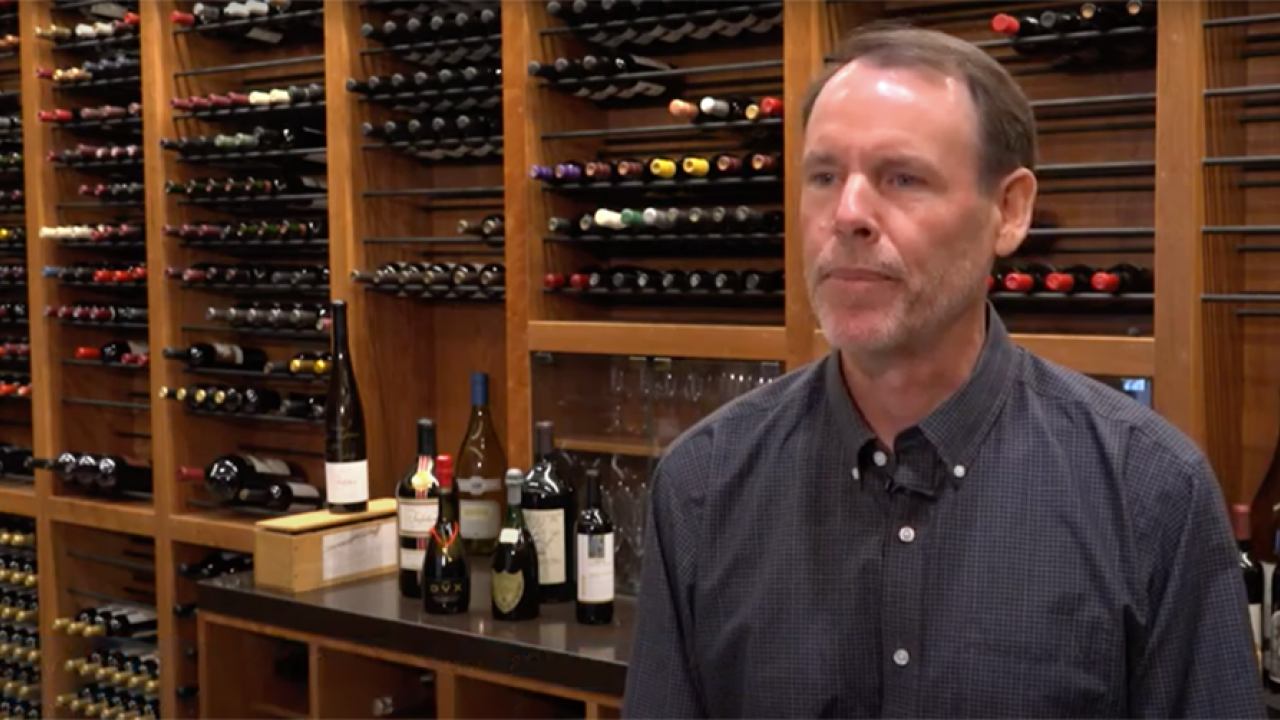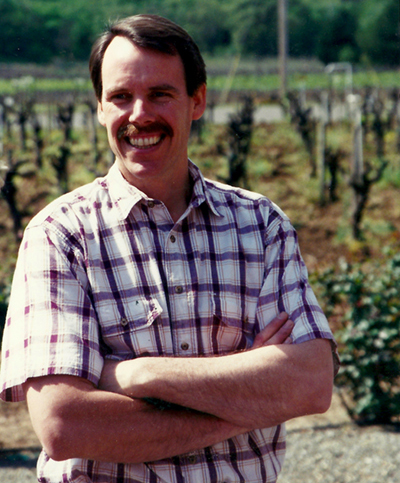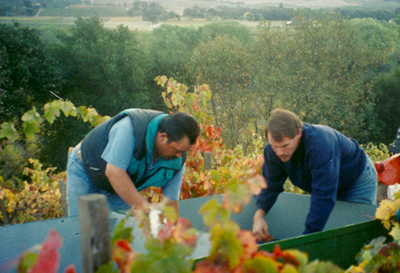
5+ Lessons from a Veteran Winemaker
There’s no doubt that a career in winemaking has a certain allure and romance to it. Winemaking is an art as much as it is a science, and careers in the wine industry can be very rewarding. But it is also a difficult and expensive endeavor, so knowing what you’re getting into before you get started is valuable. We reached out to Grady Wann, veteran winemaker and former program director of our Winemaking Certificate Program, for advice. Here's what he’s learned after more than 25 years in the industry:
- Minimalist winemaking may be a good basic philosophy, but sometimes it is better to just make better wine.
- The numbers are important, but you need to learn to trust your palate.
- A harvest plan is good, but flexibility is better.
- Winemaking is fun, but sales can be hard.
- The sensory experience is subjective, and not everybody is going to like every wine.
Bonus Tip: Don’t overlook the importance of professional development and continuing education.
1. Minimalist winemaking may be a good basic philosophy, but sometimes it is better to just make better wine.

Like most winemakers, I started my career with the goal of non-intervention in the winemaking process. The idea that good grapes will turn into good wine with as little manipulation from me was my goal from the start. However, one thing that you learn fairly early on is that the term “winemaker” is just that, a maker of wine. Your role is one of properly caring for the development of the wine all along the way. There are hundreds of little decisions (small “manipulations”) that will result in the wine’s final style. And whether the wine calls for a little acid here, a little tannin there or even a little filtration, sometimes it is necessary to intervene in order for the wine to be the best it can be.
2. The numbers are important, but you need to learn to trust your palate.
I was a trained organic chemist when I first became a winemaker. As you might expect, I had great regard for the analytical side of winemaking. What I learned along the way is that while the numbers (pH, ethanol %, titratable acidity, residual sugar, phenolic content, etc.) are important, they are not at all the way consumers evaluate wines. Analytical measures provide reasonable parameters and ranges that help guide your decisions as a winemaker, but they do not directly translate into better wines. Learn to trust your palate to tell you what tastes good. (And the good news is that practice improves your ability to describe wines. And they call this work!)
3. A harvest plan is good, but flexibility is better.

The harvest season is a wonderfully exciting and chaotic time of year. (It is the one thing I miss since selling our winery.) With its many moving pieces, it is important to make a plan for the crush. You should have goals around your expectations for crop yield, grape composition, harvest timing, wine styles, etc. However, rarely (dare I say never) do your plans actually come to fruition. Usually, by the second day of harvest, your blueprint has been altered, if not destroyed. Your thoughts about optimum harvest parameters may be hampered by weather, disease, labor availability or tank space. You may end up with 50% more Chardonnay grapes than you expected, have a short crop of Zinfandel or your shipment of new barrels may not have arrived on time. And once you get the grapes inside the winery, fermentations do not always go as planned due to equipment failure, operator error or just the finicky nature of native yeast. All that to say, you need to be prepared, but you also need to be ready and willing to shift gears as necessary.
4. Winemaking is fun, but sales can be hard.
I loved the process and the investment of time and energy involved in making quality wine. It is such a wonderful combination of agriculture, production, science, art, craft and hard work! It is also seasonal, so there was never a time to get bored. However, I was not a big fan of the sales side of the business. It is true that a bottle of wine doesn’t do anybody any good until it is sold, but the work involved with the selling of wine, especially for a small winery in the national marketplace, is hard. Selling in the tasting room is one thing. I enjoyed that aspect. There, you can talk directly with consumers who are usually interested in hearing your story. In the retail and restaurant world, however, many of the decision-makers are busy, jaded and have to navigate hundreds of wines in their business. If I had it to do over again, I think I would keep my production very small.
Interested in a career in winemaking?
Our internationally acclaimed Winemaking Certificate Program gives you the knowledge, confidence and practical insight to pursue your passion for winemaking. The program features:
- Online convenience
- One-on-one access to world-class instructors
- Exceptional networking opportunities
- Practical knowledge and skills that can be used immediately in the vineyard and winery
Learn more about the program Sign up for a free online information session.
5. The sensory experience is subjective, and not everybody is going to like every wine.
We all know that the sensory experience of wine is a subjective thing, (just look at the wine competition results). However, when you have slaved over one of your wines for a year or two and feel great about its inherent “quality,” it can be difficult to come face-to-face with someone who doesn’t appreciate it as much. This is not a huge deal in the tasting room setting—customers can usually find at least one wine that they respond positively to—but it can be a real blow to the ego when a major retailer or restauranteur has a negative reaction. You just need to remember that everyone has their own palate, level of experience, market niche and bias that has been built up over time. (They might also just be having a bad day.) In that situation, you must learn to simply say thank you and be ready to present your wine to someone else. The good news is that next time, you are likely to get a very different response!
Bonus Tip: Don’t overlook the importance of professional development and continuing education.
Winemaking has been around for thousands of years, but that doesn’t mean we’ve learned everything there is to learn about the art and science of winemaking. The world of wine is complex and each year brings about new considerations—such as sustainability, global warming, wildfires, new vineyard diseases and health, ecommerce and natural wines—so staying up to date on current trends and being prepared for the variety of skilled positions available in the industry is key. By pursuing additional training in winemaking, you’ll not only keep your skills current, you’ll also learn about best practices and the latest technologies available to winemaking professionals. And, I should also mention that professional development is a great way to network with peers, meet with industry experts and even expand your skill set outside of winemaking, such as leadership development and project management. Regardless of whether you’re looking to advance in your career, move laterally within your organization or expand into new markets, continuing education should not be overlooked.
